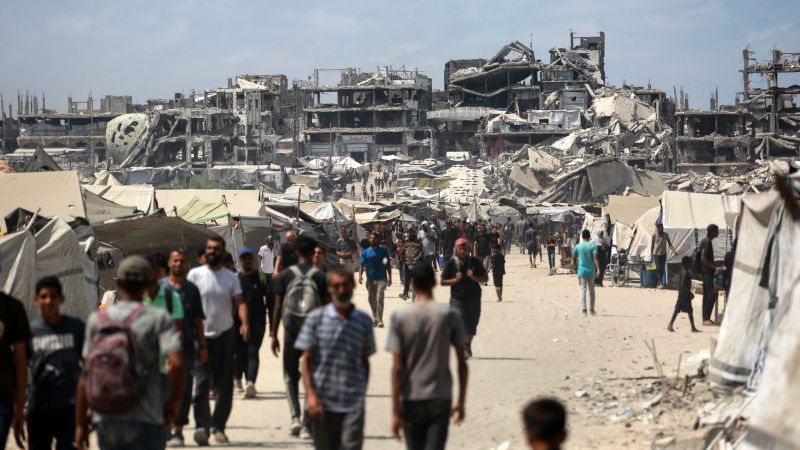In a significant recent development, Secretary of State Marco Rubio announced on Sunday that the United States State Department has suspended visitor visas for individuals from Gaza. The decision comes after the agency received “evidence” suggesting that some organizations facilitating visas for Gazans have strong ties to terrorist groups such as Hamas. However, the State Department did not elaborate on the specifics of this evidence, raising questions about the underlying rationale for this sudden policy change.
The announcement was made public through a post on the social media platform X (formerly Twitter) on Saturday, highlighting the urgency of the situation. The State Department stated that it would temporarily halt all visitor visas for Gazans while it undertook a comprehensive review of the current procedures that allow individuals to enter the United States for essential medical and humanitarian needs. This decision emphasizes the balancing act the U.S. government must perform between humanitarian assistance and national security.
During an appearance on CBS’s “Face the Nation,” Rubio elaborated on the situation, mentioning that the Trump administration had been presented with the “evidence” by multiple congressional offices. He indicated that these offices had also reached out to express their concerns regarding the visa issuance process. However, he refrained from disclosing specific details about the evidence or the congressional offices involved, maintaining a level of ambiguity that many observers found puzzling.
The suspension of the visas for Gazans has attracted a response from several stakeholders. Far-right political activist Laura Loomer claimed credit for this policy pause, alleging that families arriving from Gaza pose threats to U.S. national security. Loomer has been a controversial figure, and her involvement in advocating for stricter immigration policies often draws both support and criticism across the political spectrum.
Moreover, Loomer has particularly targeted HEAL Palestine, a U.S.-based nonprofit committed to providing crucial medical assistance to Palestinian families, including providing care to children suffering from severe injuries and psychological trauma. HEAL Palestine asserts that its mission is humanitarian, having evacuated dozens of severely injured children and other vulnerable individuals seeking medical treatment. In response to the visa suspension, they issued a statement clarifying that their program is not meant for refugee resettlement but rather for medical assistance.
The organization condemned the decision to halt visitor visas, expressing concern over how it might adversely affect the health and well-being of those they aim to help. Furthermore, as of May, nearly 4,000 visas had been issued to individuals holding Palestinian Authority passports seeking medical treatment in the U.S., with this data inclusive of individuals from both Gaza and the West Bank.
Rubio acknowledged on Sunday that although a “small number” of visas had previously been issued to children, these visas often came with accompanying adults. He emphasized the necessity of pausing the program to reevaluate how the vetting of these visas occurs. His comments hinted at a more thorough inspection of the organizations involved in the facilitation process, although he did not name specific groups nor provide additional evidence to support his assertions regarding links to Hamas.
In light of these developments, CNN reached out to the State Department for clarification on the evidence cited by Rubio, aiming to gain more insight into the decision-making process. Meanwhile, President Donald Trump weighed in on the humanitarian crisis in Gaza, acknowledging “real starvation” and expressing discontent with Israeli Prime Minister Benjamin Netanyahu’s approach. Trump’s comments mark a notable shift in stance and indicate a growing concern about the humanitarian conditions affecting civilians in the region, acknowledging that such issues require more active involvement from the U.S. government.
In summary, the suspension of visitor visas for Gazans marks a complex intersection of national security and humanitarian assistance, revealing underlying tensions in U.S. immigration policy and international relations. The response from various organizations and individuals reflects a broader discourse about the nature of U.S. involvement in Middle Eastern humanitarian issues, national security concerns, and the narrative surrounding Gaza’s plight. Moving forward, the scrutiny of this policy and its implications remains a pivotal topic of discussion among policymakers and advocacy groups alike.











